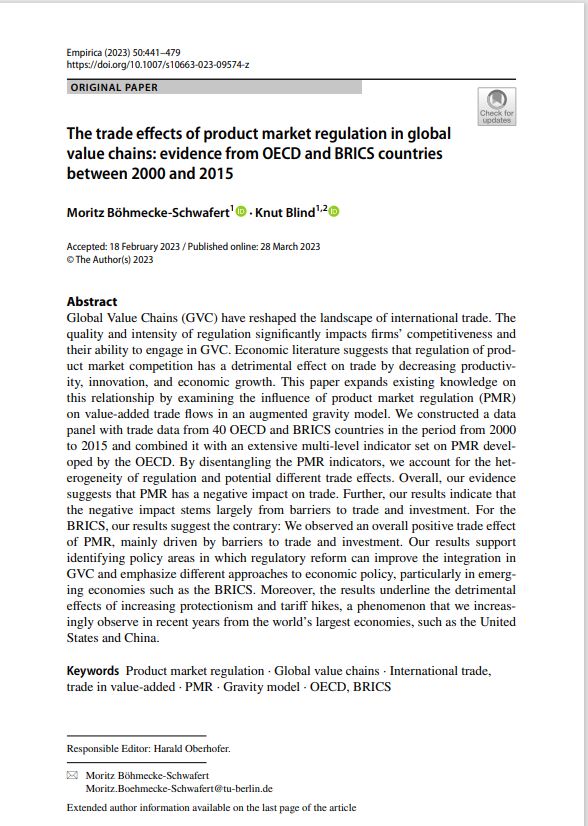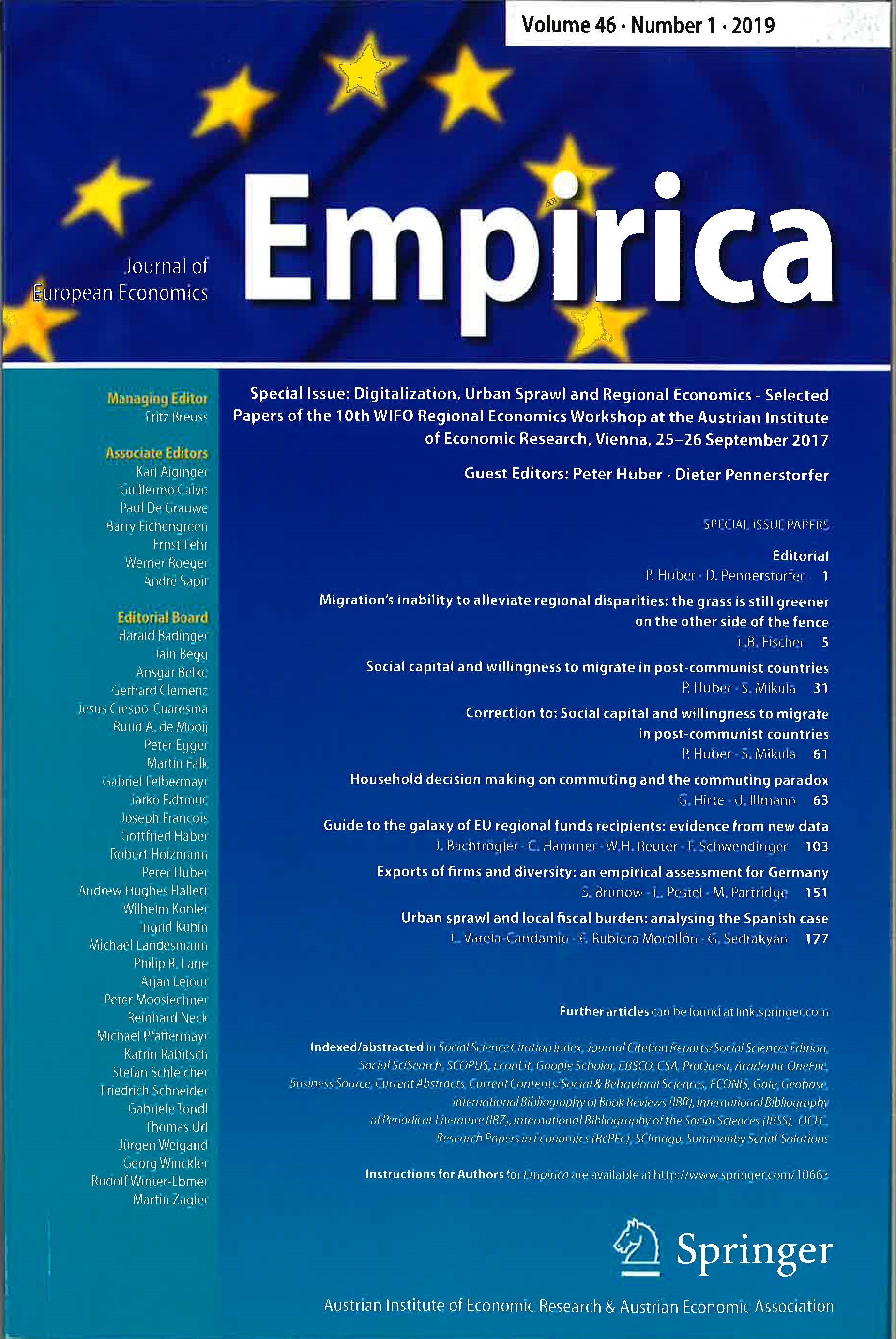I am super excited that our empirical article on the trade-effects of regulation has been recently published in Empirica - Journal of European Economics. In this paper, we disentangled different types of regulations and their trade effects to account for the heterogeneity/complexity of regulation. Using an augmented gravity model, we applied Pseudo-Maximum Likelihood (PPML) estimations on data from 40 OECD and BRICS countries between 2000 and 2015, thus differentiating between emerging and industrialized economies.
Our findings
Our results indicate that PMR overall has a negative impact on trade, with barriers to trade and investment being the main drivers. However, we also observed a positive trade effect of certain PMR. In particular we found positive trade effect of different regulation in BRICS countries. The findings highlight the need for regulatory reform to improve integration in GVC. Moreover they underline the detrimental effects of increasing protectionism and tariff hikes, a phenomenon that we increasingly observe in recent years from the world’s largest economies, such as the United States and China.
Implications
We hope that our study will inform policy discussions and spur further research on the complex relationship between regulation and trade. Our findings also demonstrate the ineffectiveness of the current economic policy in the late 2010 and early 2020s of the US. According to our model’s results, the recent tariff hikes by the US to decrease the trade deficit with China (and the retaliation measure from China) is expected to have the opposite effect, and exports from China might actually increase. Future empirical research has to confirm these assumptions with the emergence of new data. Most importantly, the results indicate that regulation has different effects and roles in countries characterized by state-oriented capitalism. Hence, trade organizations and policymakers need to account for and consider these differences. Further research should follow up on these initial results. Additionally, Additionally, the data analysis has interesting implications for emerging countries such as the BRICS group will benefit from further integration into the global economy through participation in GVC. However, the inclusion of the Russian Federation in this group presents a challenge to this assumption. Since the country’s annexation of Crimea in 2014, the subsequent involvement in the conflict in the Easter Ukraine and most importantly, the Russian invasion of Ukraine in 2022, Russia’s economic development and trade policy has been heavily impacted by economic sanctions being imposed by Western countries, which likely have significant impact on Russia’s trade and investment flows. Furthermore, Russia’s economic model is heavily dependent on natural resource exports, particularly oil and gas. This dependence on natural resource exports has led to volatility in the country’s economy, with the price of oil and gas having a significant impact on the country’s economic performance. In light of these factors, it is questionable whether Russia will be able to advance to further stages of development.Thus, policymakers could reconsider the inclusion of Russia in the BRICS group, given its outlier status and unique set of economic and geopolitical challenges, and potentially diminishing role in GVC. This could potentially lead to the group being reconstituted as BICS or a different acronym altogether. If you want to learn more about this research, regulation, and trade in Global Value Chains, you can find the article open access in Empirica here.

